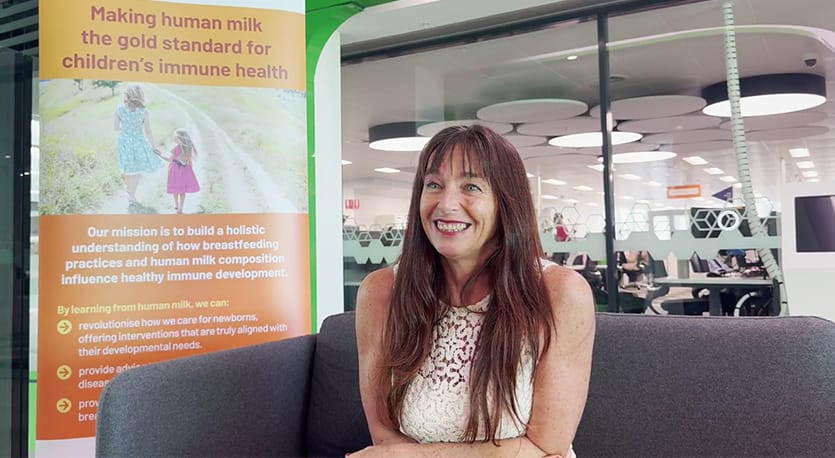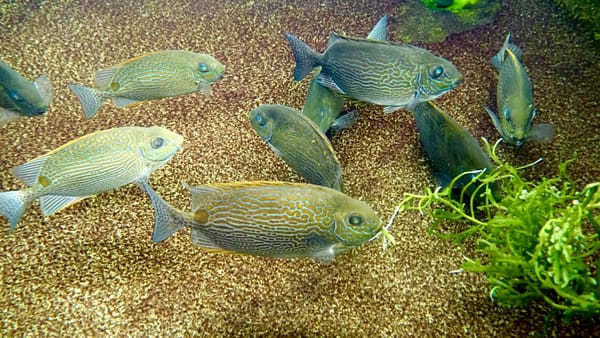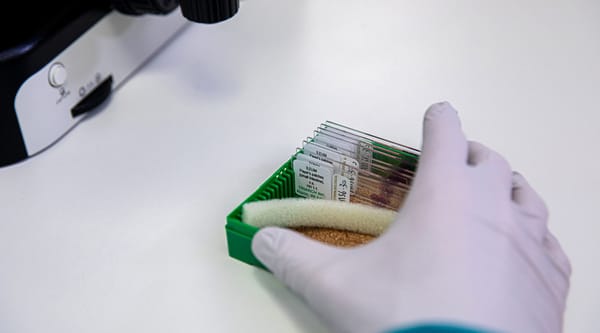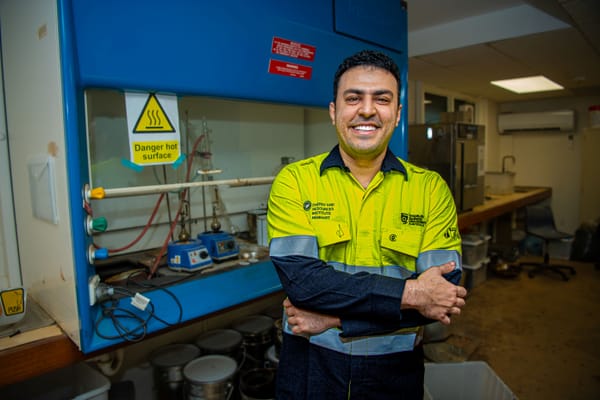Early life: a time of growth and foundation-building, in need of tailored care
When we look at a child, it’s easy to see how different they are from an adult. They are in an incredibly dynamic phase of life, with the needs of their growing bodies evolving every day.

First published by The University of Western Australia
When we look at a child, it’s easy to see how different they are from an adult. They are in an incredibly dynamic phase of life, with the needs of their growing bodies evolving every day. For the very young, everything is new—and this is also true for the immune system. It must learn to distinguish what to fight, such as harmful pathogens, and what to tolerate, like their own microbiota or food. This raises a critical question: why does most infant healthcare still rely on adult therapeutics, with only minor adjustments such as dosage?
Professor Valerie Verhasselt and her Centre, the UWA Larsson-Rosenquist Centre for Immunology and Breastfeeding (LRF-CIBF), aim to change this perspective by placing the infant at the core of their medical research. Their goal is to deepen our understanding of infants’ unique biological needs. To do so, they turn to one of nature’s most powerful and creative interventions: breast milk.
The magic of nature
The team advocates that nature clearly recognises the profound differences between infants and adults—and has, over millions of years, shaped breast milk to meet the newborn’s specific developmental and immune needs. Far from being a passive food, breast milk is a dynamic biological system. Its composition adapts to the infant’s developmental stage and to their local environment and provides personalised help such as antibodies. Importantly, it actively contributes to shaping the child’s development until they are ready to be weaned.
The LRF-CIBF aims to make a difference by uncovering the science behind breast milk. The Centre aims to help parents and healthcare professionals make informed, evidence-based decisions about newborn and infant feeding, and to inspire the development of nature-informed therapies tailored to infants’ specific developmental stages—ultimately improving lifelong health for all, from the very beginning.
Professor Valerie Verhasselt is internationally recognised as an expert in neonatal immunology. She has advanced the health promotion of babies and infants through her breastfeeding research since 2004 and became the world’s first Chair in Human Lactology in 2017. She is a Professor in the University of Western Australia (UWA) Medical School, and the Director of the Larsson-Rosenquist Foundation Centre for Immunology and Breastfeeding (UWA). Her Centre is strategically located at The Kids Research Institute Australia, which aligns with the vision of LRF-CIBF and facilitates direct application of research outcomes into practice.
The LRF-CIBF relies on a strong network of over 30 collaborators, including global leaders in immunology, paediatrics, nutrition, allergy, infectious diseases, neurodevelopment, and public health. It is also embedded within the Global Human Milk Research Consortium (GHMRC), reinforcing its international reach and influence. Importantly, the research is guided by a highly engaged consumer group comprising mothers, fathers, and grandmothers from diverse cultural backgrounds—ensuring that the work remains aligned with the real needs and perspectives of families. The vision of the LRF-CIBF is made possible through the support of the Larsson-Rosenquist Foundation, along with funding from Open Philanthropy, the Channel 7 Telethon Trust, and the WA Child Research Foundation.
“I see the infant as part of a larger environment — with the mother as the closest and most immediate influence. In utero, she shapes the infant’s development through her circulation and the amniotic fluid; after birth, through her breast milk, until the child is ready to develop independently.”
Professor Valerie Verhasselt, UWA

Colostrum has an important role to play in newborn health
An optimal start to life
When a baby is born, it leaves a sterile, aquatic environment where its physiology is closely linked to the mother, to face major challenges like lung breathing, reliance on external nutrients, and exposure to billions of microbes. In this storm of change, the newborn must also continue its development, focusing on growth while adapting to the outside world and laying strong foundations to ensure long-term health. At this critical moment, the mother produces colostrum—the first milk—available during the first 2 to 3 days of life. Often referred to as “liquid gold,” colostrum’s very unique composition suggests it is especially designed to support the newborn through this intense transition. Yet, at least one in three newborns worldwide receives supplements, as if colostrum alone was not sufficient. The LRF-CIBF’s research has shown that up to 50% of infants in Western Australia are not fully colostrum fed due to formula supplements. Crucially, supplementing a newborn with formula not only exposes the newborns to cow’s milk products such as allergens, but also interferes with colostrum intake, disrupting the very process nature most probably designed to protect and support early development.
Raising awareness to shape lifelong health
The team’s focus is to raise awareness of the benefits of colostrum in meeting the specific needs of the newborn as a distinct individual. The team recognises that starting breastfeeding can be stressful for new mothers. Their goal is to fill research gaps and provide clear, evidence-based knowledge to both parents and healthcare professionals. This helps create an environment where informed decisions can be made in the crucial first days. Ultimately, they aim is to encourage investment in greater support for mothers to successfully initiate breastfeeding.
To date, their preclinical models have demonstrated how crucial colostrum is for promoting strong gut immunity and regulated energy metabolism—factors that have important implications for the prevention of gut parasitic infections and stunting, respectively. Importantly, the LRF-CIBF is committed to validating these findings in real-world settings and is currently analysing data on early feeding practices and child health outcomes—including infection, allergy, neurodevelopment, and growth—in cohorts from both high- and low-income countries. In Western Australia, through the ORIGINS birth cohort, they found that 50% of newborns miss out on colostrum, a pattern that may be linked to an increased risk of developing peanut allergy.

The research will help mothers and health professionals make informed decisions.
Human milk guidance for healthy development
The infant’s immune system has not yet developed the experience needed to respond appropriately to new environmental exposures, such as allergens. In 2008, Professor Verhasselt published a landmark study in Nature Medicine, demonstrating that breast milk can actively educate the infant immune system. Her research showed that allergens transferred through breast milk can promote immune tolerance, helping the infant’s immune system to accept later encounters with these allergens and thereby reducing the risk of developing allergic diseases during childhood. This marked a paradigm shift at a time when most strategies were still focused on allergen avoidance in early life and saw breast milk as a source of nutrients and short-term protection from infection. Her findings opened new perspectives on maternal dietary recommendations during breastfeeding for allergy prevention.
“Breast milk is deeply influenced by the mother’s physiology and environment. If we truly want to understand and support child health, we must look beyond the infant alone — and embrace the full picture.”
Professor Valerie Verhasselt, UWA

Human milk can influence healthy outcomes from infancy to adulthood.
This new evidence contributed to the 2014 food allergy prevention guidelines, updated in 2020, European Academy of Allergy and Clinical Immunology guideline: Preventing the development of food allergy in infants and young children (2020). The guidelines are used by specialists, doctors, paediatricians and researchers whose focus is on allergy prevention and management. Importantly, this research set the scene for a broader concept: that breast milk reflects the maternal exposome (maternal exposures) and prepares the infant for life in their environment. In collaboration with an expert in dietary prevention of allergy, Debbie Palmer and the ORIGINS cohort, the LRF-CIBF continues to explore how to maximize the potential for allergy prevention through maternal intervention and breastfeeding, including researching the benefits of incorporating dietary recommendations for mothers—such as increased fibre intake.
Building on the concept that breast milk actively shapes the infant immune system, the Centre formulated the hypothesis that pathogen-derived antigens transmitted through breast milk could prime immune responses—serving as a natural form of vaccination. This premise was tested in a birth cohort in Uganda, where the LRF-CIBF led the first study to identify malaria antigens in breast milk, suggesting that their presence may have been evolutionarily selected to promote infant immunity.
The World Health Organization recommends exclusive breastfeeding for around six months, followed by continued breastfeeding alongside complementary foods until 12 months and beyond. In Australia, while 96% of mothers initiate breastfeeding, the rate drops sharply within the first weeks. By three months, only 39% of infants are exclusively breastfed, and by five months, this figure falls to just 15%.
Nationally, there is a lack of data nationally around colostrum feeding, and this gap reflects a broader lack of awareness. However, the team’s research, along with other Australian studies, indicates that between one in three and one in two infants may miss out on colostrum, the first and most immunologically rich milk. Moreover, mothers lack clear, evidence-based guidance on how lifestyle factors, including diet, can influence the health benefits of breastfeeding, generating maternal anxiety and potentially not giving the best milk benefits to their child.
The LRF CIBF research brings essential insights into how breast milk contributes to immune education and child health. This knowledge directly informs recommendations for lactating mothers and stakeholders in child health. It also lays the foundation for designing nature-informed therapies tailored to the unique biological needs of infants, for mothers who are unable or choose not to breastfeed.
“I feel I am doing an exceptional job — helping reveal the potential in each researcher, advancing knowledge, and living each day in awe of infants’ uniqueness and one of nature’s most creative inventions. Sharing our findings with the widest possible audience is my way of sparking wonder and, hopefully, improving health for all.”
Professor Valerie Verhasselt, UWA




